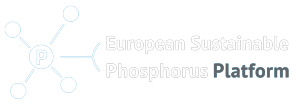The Commission is launching a consultation on how to use phosphorus in a more sustainable way. Phosphorus is widely used in agriculture and is an essential component in fertiliser and animal feed, but it is a resource which has no substitute. Supplies are limited, prices have been volatile and much phosphorus is currently wasted, creating concerns about the cost and availability of futuresupplies in the EU and worldwide. http://ec.europa.eu/environment/natres/phosphorus.htm
The consultation asks how to ensure that reserves are available for future generations, and about ways to minimise the undesirable side effects phosphorus use can have on the environment. Phosphorus run-off from farm fields to watercourses, for example, can lead to increased growth of aquatic plants and algae, a phenomenon known as eutrophication.
Environment Commissioner Janez Potočnik said: "We are currently wasting this precious resource and creating a pollutant. Using phosphorus more efficiently will reduce its impact on the environment and improve security of supply. We can also create new business opportunities in the recycling sector."
The consultation aims to launch a debate on phosphorus use and ways to make it more resource-efficient. The Communication is not designed with specific legislation on phosphorus in mind, but invites the European Institutions and all interested stakeholders to comment on the issue.
A number of options that could improve the current situation are suggested, such as using fertiliser and feed in a more targeted way, reducing soil erosion, and encouraging recycling of phosphorus from manure, waste water and compost. Contributors are invited to reflect on what could be done to encourage recovery from other sources, such as food and biodegradable waste.
The consultation also asks for views on how to tackle the issues of demand and supply, how to handle the risk of soil contamination, and which technologies or innovations should be promoted to improve the sustainable use of phosphorus.
Next Steps
The European Parliament, the Council and other European institutions, citizens, public authorities, NGOs and businesses are welcome to contribute their views until 1 December 2013. The Commission will analyse the contributions in the course of 2014. It will integrate the results of this work into pertinent policy areas, from agricultural policy through water and waste to work on raw materials.
Background
The productivity of modern agricultural systems depends largely on the addition of phosphorus to soils as fertiliser and to animal diets in feed. Most phosphorus comes from phosphate rock mines, but there is only one such mine in the EU, and most phosphate rock used in the EU comes from North Africa and Russia. A good overview of the situation can be found here.
At present much phosphorus is wasted all along the food production cycle, often causing environmental problems such as water pollution. EU law regulates phosphate water pollution through legislation such as the Nitrates Directive or the Urban Waste Water Treatment Directive but does not currently encourage more efficient use of this nutrient.
Several Member States have taken steps to encourage more recycling and efficient use of phosphorus, and some forms of reuse, such as manure and sewage sludge spreading, are common throughout the EU. However, these sources are not always used in the right places or in the right way to ensure that they are taken up by the crops.
The EU is working on improving market access for some of these sources of recycled phosphorus, notably through a revision of the Fertilizer Regulation.
Further research is needed into promising techniques and technologies, and the European Innovation Platform on sustainable agriculture along with other work under Horizon 2020, will help stimulate these developments from European businesses and research bodies.
For more information:
Link to the consultative communication:
http://ec.europa.eu/environment/natres/phosphorus.htm
http://ec.europa.eu/yourvoice/consultations/index_en.htm
This press release was originally published on the website of the European Commission.
